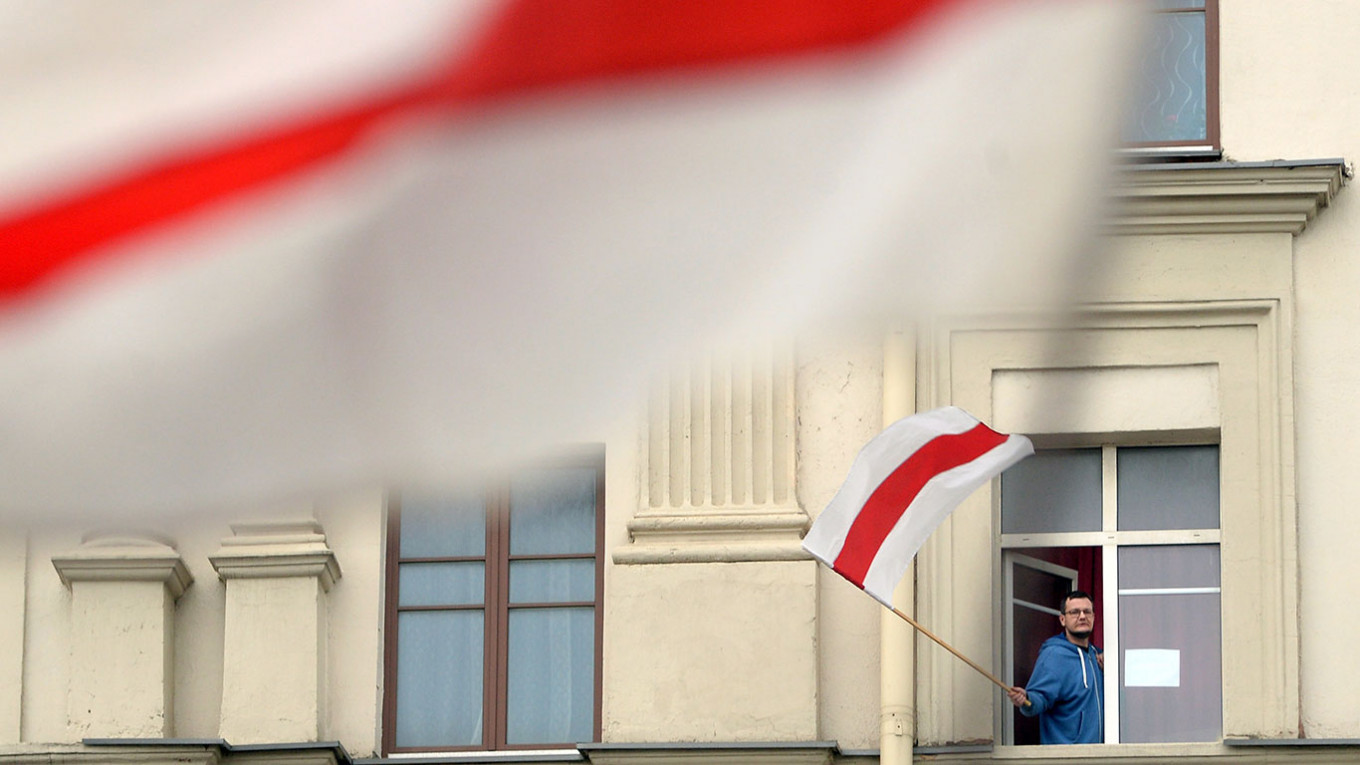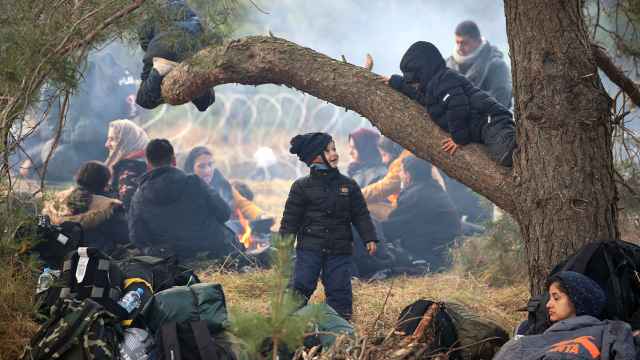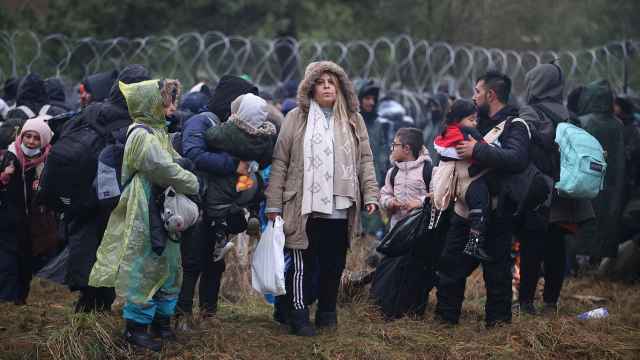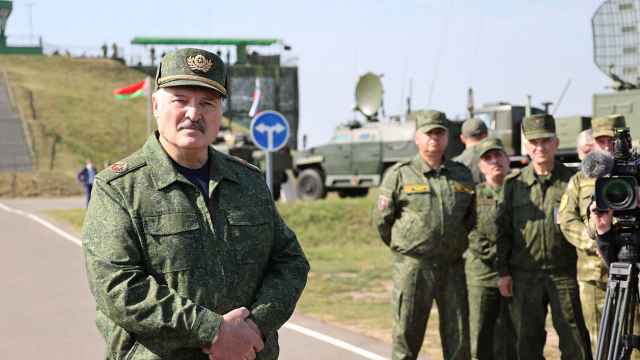Oleg Moiseev initially thought he was leaving Belarus for just two weeks.
But as circumstances changed, so did his plans — and what was meant to be a short trip to Lithuania turned into a life of political exile.
Moiseev, 43, is one of thousands of Belarusians who have fled the country in the year since mass protests against strongman Alexander Lukashenko’s regime ended in a harsh, bloody crackdown.
A former member of the Belarusian opposition’s Coordination Council and opposition leader Svetlana Tikhanovskaya’s presidential campaign, Moiseev now manages a Telegram channel called “New Belarus in Lithuania.”
After he went to Lithuania in December, several of his friends were detained and questioned by Belarus’ KGB, the successor to the Soviet secret police of the same name.
And then state television began to ask who was organizing closed Telegram chats between Tikhanovskaya’s team and the Belarusian opposition’s so-called “courtyard initiatives” — grassroots communities where apartment building residents coordinate small acts of resistance.
Moiseev knew it was him.
“When your comrades tell you: ‘How are you going to return? You will 100% go to jail here, think, you can do more from the outside’ ... I decided to stay in Lithuania,” Moiseev — who had faced multiple arrests, torture and seizure of his property before he left Belarus — told The Moscow Times by phone.
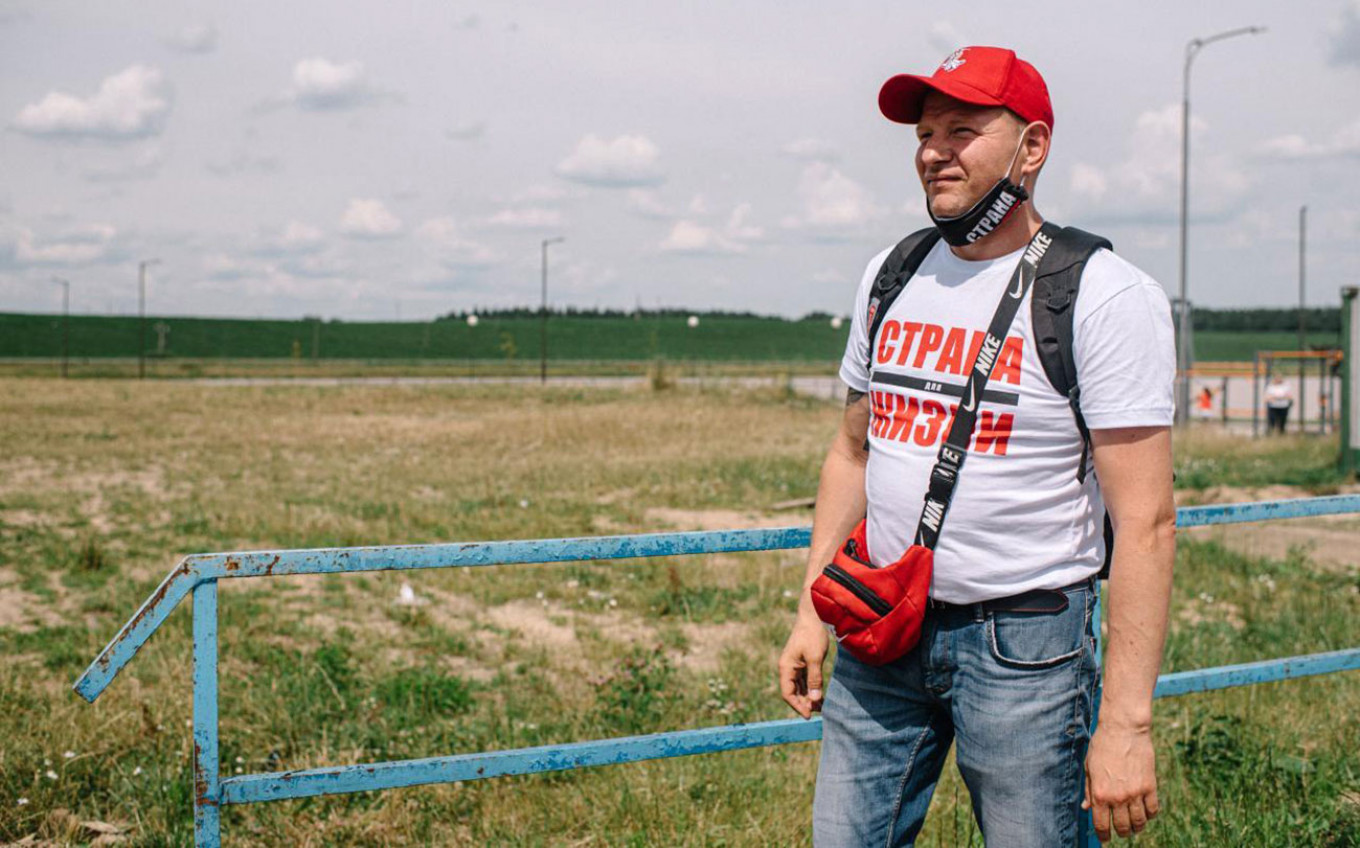
According to the independent Vyasna rights group, more than 600 people are currently political prisoners in Belarus. In 2021 alone, 4,500 criminal cases were opened and more than 3,000 people have passed through the prison system, according to the group’s estimates.
Moiseev is far from alone in fleeing the crackdown. Belarus’ rate of population decline has tripled over the past year, a decrease of 60,000 in real numbers, according to official Belstat statistics.
“People who are abroad are the only ones with any influence at this point,” Tadeusz Giczan, the former editor of opposition Telegram channel Nexta, told The Moscow Times.
With life in Belarus tougher than ever, the choice to stay or to leave is often an ideological one — but never easy.
Opposition in exile
Last August, hundreds of thousands rallied against Lukashenko’s 27-year rule in support of Tikhanovskaya, who ran in Belarus’ presidential election on a platform of free and fair elections after her husband, also a candidate, was jailed.
According to estimates by independent election observer Golos (“Voice”), the overwhelming majority of Belarusians voted for Tikhanovskaya in the Aug. 9, 2020, election. But official results said Lukashenko won over 80% of the vote, a result many say was fraudulent.
While Tikhanovskaya fled to Lithuania after the election and has been rallying support in Western capitals since, opposition activist Maria Kolesnikova tore up her passport at the Ukrainian border to prevent authorities from deporting her. She now faces up to 12 years in prison.
“Kolesnikova ... became a very beautiful symbol and it’s clear that everyone admires her, but the truth is that she did not exert any influence over the past year,” Giczan said.
Giczan has worked to influence events at home as the editor of Nexta, the Telegram channel founded by Belarusian expats in Poland that became a key organizing tool during last year’s protests.
“Everyone who wants to do something … they have to do it from abroad,” Giczan said. “Work is now underway in many areas, including preparing ‘Marshall Plans’ for a transitional period and freezing Lukashenko's assets.”
He had replaced former Nexta editor Roman Protasevich, who was arrested when his Ryanair flight from Greece to Lithuania made an emergency landing in Minsk over a fake bomb threat. Protasevich remains in Belarus after publicly denouncing the opposition in an interview many say was conducted under duress.
“Unfortunately, the Belarus KGB emotionally and mentally broke him,” Giczan said.
After recently leaving Nexta, Giczan plans to split his time between Poland and Lithuania, working for think tanks and Western media.
Like him, many Belarusian opposition activists settle in these two EU countries — but some go east to Russia.
Lana, who asked that her last name be withheld, administered a Telegram channel for Belarusian expats in Moscow and said its membership grew from 20 to 2,000 after the election.
“The Belarusian expat community is very tight-knit and last year’s events only brought us closer,” she said.
But some Belarusians in Russia feel conflicted as the Kremlin has thrown its support behind Lukashenko.
“Russia keeps supporting Lukashenko no matter what terrible things he does. For me as a Russian citizen, it’s very sad and very disappointing,” said Alex, who moved to Moscow with his parents 20 years ago when he was 17 but stays connected to Belarusian exiles and the work they are doing.
Those who stayed
In the weeks following the Aug. 9 election, Belarusians from all walks of life joined forces to show their opposition to the brutal police crackdown on protesters who rallied against the vote results.
A focal point of these pro-democracy rallies was the “Square of Changes” in Minsk, a residential courtyard that got its name from protest anthem “Khochu Peremen! (I Want Changes!)” by Soviet rock band Kino.
But the regime soon returned to harsh tactics.
In the year since the election, the grassroots struggle to topple Lukashenko’s regime has lost significant momentum. Many who actively resisted the regime have either fled the country or been jailed, while those who remained are silent for their safety.
As security forces put down the protests, the red-and-white flags and ribbons of the opposition that decorated the square disappeared. And the mural in the courtyard's center of two DJs who played “Khochu Peremen!” at a pro-government rally has been painted over.
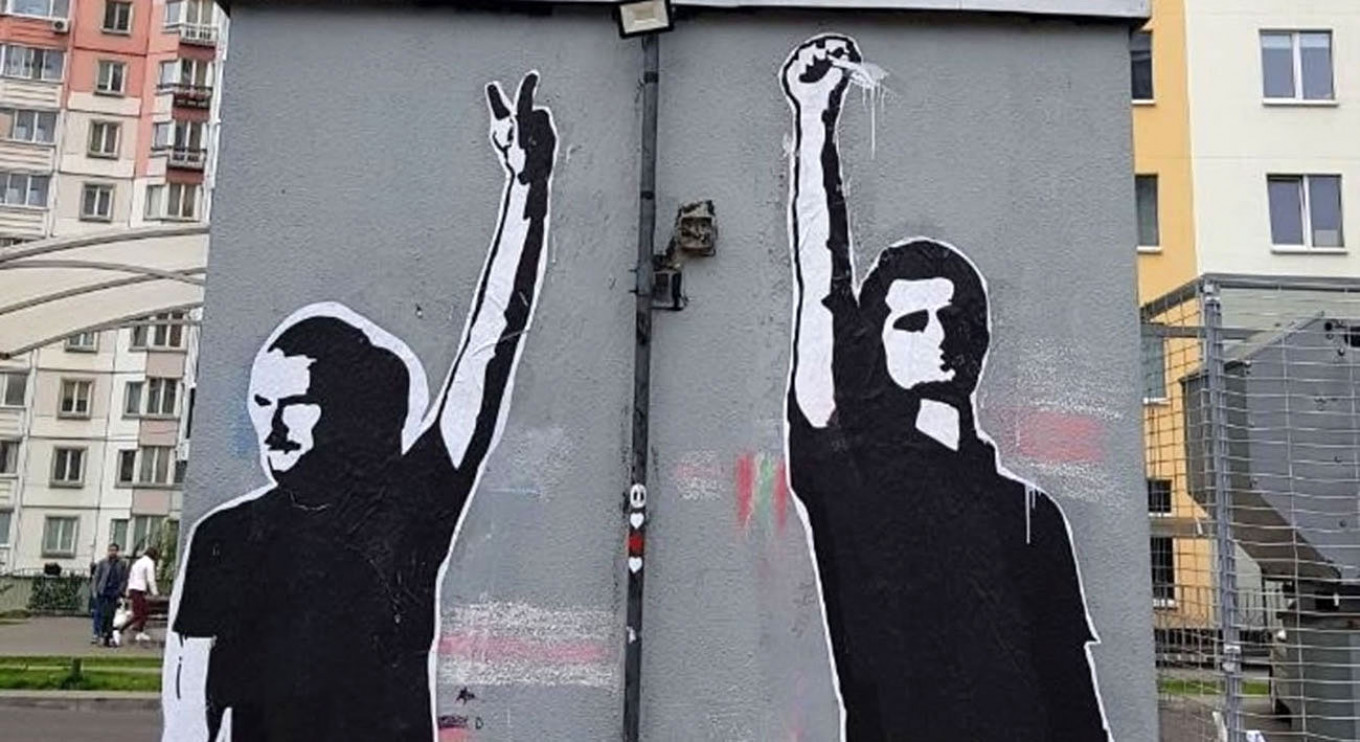
“It feels like we are living under an internal occupation,” said Yulia, a resident of the Square of Changes and participant in the protests. “The neighbor above me just got arrested two weeks ago.”
In the square where opposition supporters once staged peaceful rallies, concerts and memorials, mothers gossip and watch their children play as they themselves are watched by men in vans with dark curtains.
“They are here 24/7, on the benches, inside parked cars and even inside our apartment buildings,” said Nastya, a mother who lives in the neighborhood.
According to Nastya, security officers in civilian clothes patrol the courtyard, with reports of them checking residents’ backpacks as they come and go from their apartments.
Yet despite the illusion of normality, everyone knows life will never be the same after last August.
“Last year, we saw a million people on the streets of Belarus. Those people have not disappeared; their opinion of Lukashenko did not change,” Yulia said.



